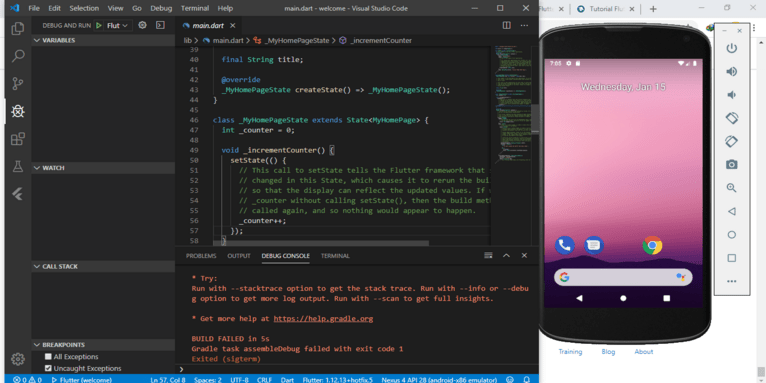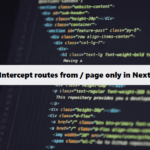If you’re encountering a Gradle run error while trying to launch a Flutter virtual device in Android Studio in 2024, here are some troubleshooting steps you can follow:
- Update Flutter and Dart:
- Ensure that you have the latest version of Flutter and Dart. Run:
#command #flutter
flutter upgrade
- Check Flutter SDK Path:
- In Android Studio, go to
File>Settings>Languages & Frameworks>Flutterand verify that the Flutter SDK path is correct.
- In Android Studio, go to
- Clear Gradle Cache:
- You can try clearing the Gradle cache. Delete the
.gradlefolder in your user directory (e.g.,C:\Users\YourUsername\.gradleon Windows) and rebuild the project.
- You can try clearing the Gradle cache. Delete the
- Sync Project with Gradle Files:
- Click on
File>Sync Project with Gradle Filesto ensure everything is synced properly.
- Click on
- Check for Gradle Build Errors:
- Open the “Build” tab at the bottom of Android Studio to view any specific Gradle errors. Address any issues indicated there.
- Update Gradle and Flutter Plugins:
- Ensure that both the Gradle wrapper and the Android Gradle Plugin are up to date in your
build.gradlefiles.
- Ensure that both the Gradle wrapper and the Android Gradle Plugin are up to date in your
- Check Virtual Device Configuration:
- Verify that your virtual device is configured correctly in the Android Virtual Device (AVD) Manager.
- Recreate Virtual Device:
- If issues persist, try deleting the virtual device and creating a new one in the AVD Manager.
- Run Flutter Doctor:
- Run
flutter doctorin your terminal to check for any configuration issues. Resolve any problems it identifies.
- Run
- Disable Offline Mode:
- If you have Gradle set to offline mode, disable it by going to
File>Settings>Build, Execution, Deployment>Gradleand unchecking “Offline work”.
- If you have Gradle set to offline mode, disable it by going to
If you follow these steps and still face issues, feel free to provide specific error messages for more targeted assistance!
Benefits of Using Coding Filters in Software Development!
Using coding filters brings numerous benefits to software development, such as improved code maintainability, easier debugging, and better performance. By isolating specific logic or conditions, developers can minimize the risk of errors and make their code more modular, readable, and adaptable to changes.




